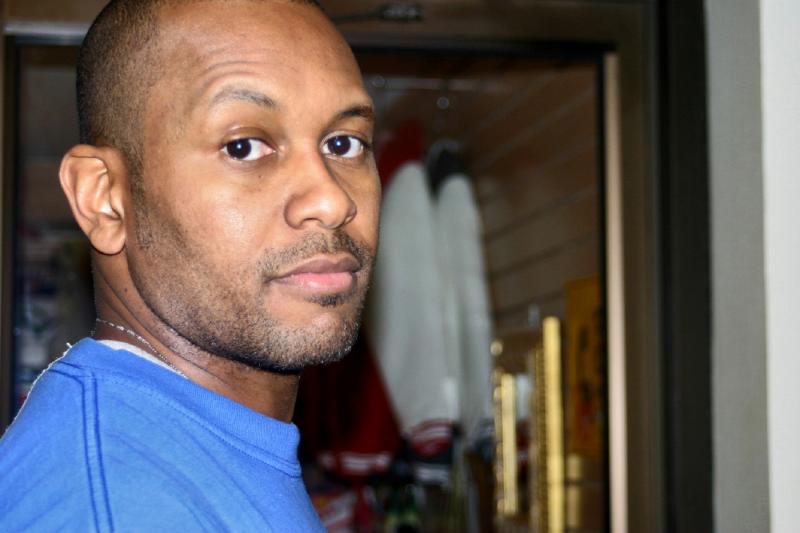Violence permeates nearly every page of “The Education of Kevin Powell.” Neighborhood boys, relatives, authority figures and even the author himself doles out pain aplenty in this memoir and coming-of-age story.
Born and raised in a poverty-stricken Jersey City neighborhood, young Kevin’s early years are a series of grim vignettes—fights on the school yard, nightmares about rats in the walls and a few brief visits from a father scarcely there. From such beginnings he grows into a prominent activist among the post-Civil Rights generation—fighting police brutality, racism and sexism.
Powell, 49, traces his love for words to the Greenville Public Library, where he stumbled upon “For Whom the Bell Tolls” as an 11-year-old. He fell in love with Ernest Hemingway. “If I could not physically leave my hometown, or escape the numbing sensation of being trapped in a concrete box,” he writes, “well at least my mind could be free to go wherever a book or play or poem took me.”
If the library sent him on imaginative adventures, his adolescent temper often landed him in terrible straights: Powell scrapes with a high school classmate and an interfering police officer knocks him out. He draws blood fighting with his cousin. “I don’t think you gonna make it, boy,” his mother says on more than one occasion, usually after a brush with the law. “You been givin’ me trouble your whole life.”

But Rutgers University provides a portal to a better sense of self, history and pride. Langston Hughes and Zora Neale Hurston on the syllabus of a Harlem Renaissance course awakened his ear: “The language that my people spoke, including my mother and my Southern kinfolk, was beautiful poetry, as fine as anything that I ever studied by Shakespeare, Chaucer, or Keats.”
The reader watches the writer organize and clash with campus peers simultaneously, and sees him land a place as a cast member of the first season of MTV’s The Real World in 1992.
Immediately after, Powell joined the staff of Vibe magazine, a new hip-hop publication founded by Anisfield-Wolf winner Quincy Jones. But a few years in, he becomes disillusioned. After criticizing management and confronting other staffers one too many times, Powell is fired. He uses the next two decades to write 11 books, give speeches in all 50 states and launch two idealistic bids for Congress in Brooklyn.
While his professional trajectory makes up the bulk of the book, Powell’s relationship with his mother is its heartbeat. She is his constant companion — their first night apart is his first day at Rutgers. A stern woman who pushed her only child to excel academically, she was quick to dole out beatings for small infractions. Her son vacillates between yearning for her love and choking down his bitterness toward her. When fellow hip-hop activist Sister Souljah attempted to hug him, Powell’s instinct was to pull away. “In my eighteen years of life my mother and I had never hugged, had never kissed, had never said to each other, ‘I love you.'”
“The Education of Kevin Powell” falls short in grappling with how this harshness affected relationships with women, and with himself. The writer breezes past his contemptuous treatment of lovers and others, alongside stints in therapy. Powell does, however, open up about his depression and alcoholism, following his dismissal from Vibe.
The book’s pacing is problematic and some of its stories here deserved a stronger arc. Powell’s reunion with paternal relatives after his father’s death should feel celebratory, but it is flattened by brevity.
In spite of such flaws, “Education” is powerful, and worth reading, a searing testimony worth much more than an entire series of “The Real World.”


